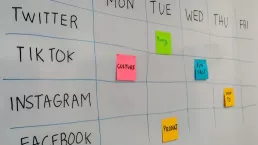For many businesses, a website forms a key part of their sales process, whether that's as a direct sales channel such as an e-commerce website or as a brochure site, so prospects can learn everything they need to about your product before making a purchase decision.
Whatever the reason for your business needing a website, the consequences of website downtime can severely impact the wider company. Downtime could mean the difference between hitting and missing a sales target or landing a big order, that's why it's important to use a website uptime tracker like PageMarshal.
The reality is that you'll never know the exact impact of website downtime on your business, but you can be sure that your website being offline will cost your business money and knowing the main causes of outages can help you mitigate impacts.
Common Reasons for Website Downtime
We can't always stop downtime, but being aware of the reasons why websites experience downtime can help us prevent it, so lets have a look at the most common reasons.
Server Capabilities
A server is just another type of computer and like any other computer, if it's not powerful enough for the job you're asking it to do, it will stop working. Make sure that any website hosting platform you use is powerful enough for the job you're asking it to do.
For most small businesses, a low cost server from any well known web hosting company will be fine. If your business starts to grow however you'll need to think about investing more in your hosting to keep your site online.
Power Outages
Even the best server is reliant on power to run it and if your hosting provider experiences a power outage then your website won't run. This might not just be down to the physical power supply to the building either, power equipment failures inside a data centre can also cause power loss.
Whatever the cause, it's out of your control.
Website Updates/Upgrades
From website builders to bespoke websites developed from scratch, all websites need upgrades from time to time, mostly for security, but also to add new features and functionality. Running upgrades can cause a website to stop working as expected, or at all.
In an ideal world, all upgrades should be tested on a separate server first to check for errors or potential risks, however this isn't always possible for small businesses. Even with the most thorough validation updates can still create problems when published to a live website.
Human Error
Yes, we're all human and humans can (and do) make mistakes which will sometimes cause your website to crash. It could be something as simple as typing the wrong value in a form through to a developer deploying code which doesn't work.
Traffic Volumes
This is almost a nice problem to have, but at the same time it's not. Sudden traffic spikes can prevent a website from working as the server becomes overloaded. It relates to the first point, a website server is only designed to deal with so much traffic and if more traffic than this arrives the server will struggle to keep up with demand.
So while that viral social post may get you seen everywhere, as a business your website may not be able to cope with demand.
Weak Website Security
Hackers, spammers, bad actors, the list of people who may want to target your website for nefarious reasons is endless. It's easy to set up a website and think you can leave it to itself, but weak security could leave your website vulnerable to attacks which take it offline.
Business Practices
If you employ even a small team and they have responsibility for your website, ensuring you have robust practices and processes in place can help keep your website online.
Even the small things like managing who can update certain areas, making sure they've had training and removing access for those leaving your business can help prevent costly mishaps.
Minimise Downtime With PageMarshal Uptime Tracker
As you can see there are a whole host of reasons why your website can go offline or suffer downtime and naturally as a business owner you want to minimise your risk. While this list of reasons why websites go down will help point you in the direction of things to consider you can't stop all downtime.
Another solution to have in place is website uptime monitoring so that even if your website does go down, you get an email alert immediately. Our PageMarshal website uptime tracking tool is a free platform which will keeps watch over your website and tells you if something goes wrong.




